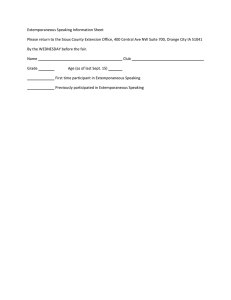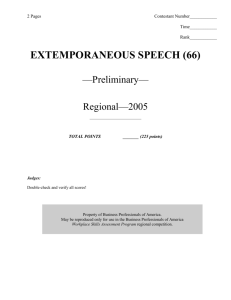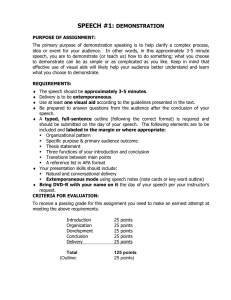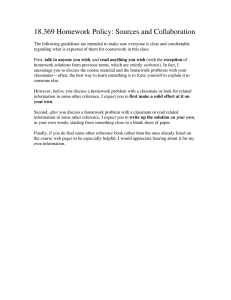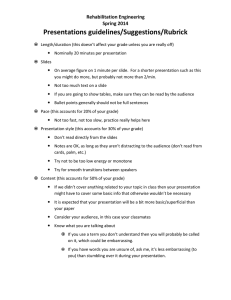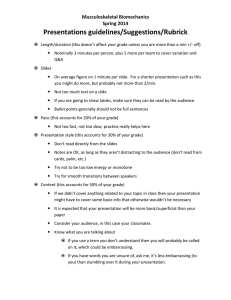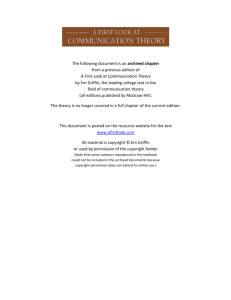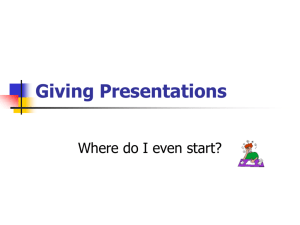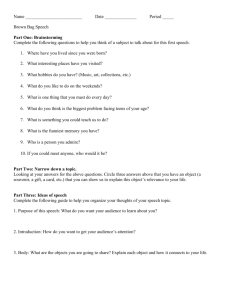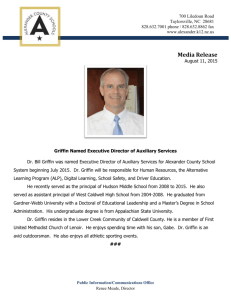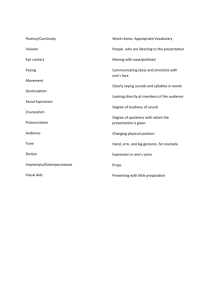Speech 101 - tHe PuBlic SpEaK
advertisement
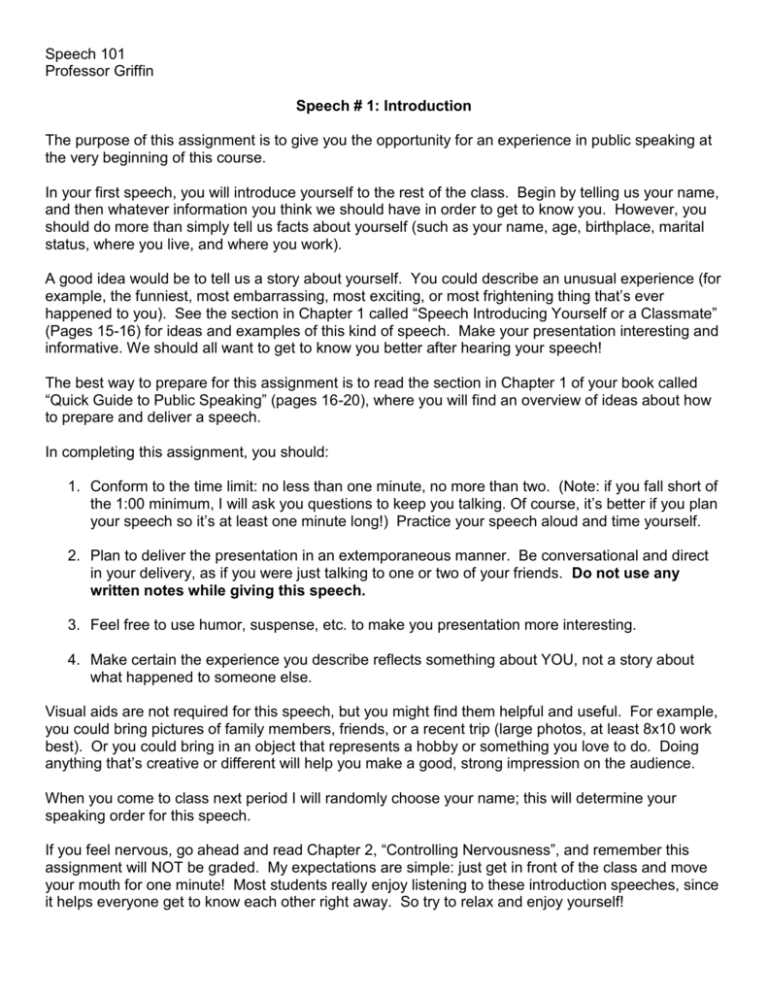
Speech 101 Professor Griffin Speech # 1: Introduction The purpose of this assignment is to give you the opportunity for an experience in public speaking at the very beginning of this course. In your first speech, you will introduce yourself to the rest of the class. Begin by telling us your name, and then whatever information you think we should have in order to get to know you. However, you should do more than simply tell us facts about yourself (such as your name, age, birthplace, marital status, where you live, and where you work). A good idea would be to tell us a story about yourself. You could describe an unusual experience (for example, the funniest, most embarrassing, most exciting, or most frightening thing that’s ever happened to you). See the section in Chapter 1 called “Speech Introducing Yourself or a Classmate” (Pages 15-16) for ideas and examples of this kind of speech. Make your presentation interesting and informative. We should all want to get to know you better after hearing your speech! The best way to prepare for this assignment is to read the section in Chapter 1 of your book called “Quick Guide to Public Speaking” (pages 16-20), where you will find an overview of ideas about how to prepare and deliver a speech. In completing this assignment, you should: 1. Conform to the time limit: no less than one minute, no more than two. (Note: if you fall short of the 1:00 minimum, I will ask you questions to keep you talking. Of course, it’s better if you plan your speech so it’s at least one minute long!) Practice your speech aloud and time yourself. 2. Plan to deliver the presentation in an extemporaneous manner. Be conversational and direct in your delivery, as if you were just talking to one or two of your friends. Do not use any written notes while giving this speech. 3. Feel free to use humor, suspense, etc. to make you presentation more interesting. 4. Make certain the experience you describe reflects something about YOU, not a story about what happened to someone else. Visual aids are not required for this speech, but you might find them helpful and useful. For example, you could bring pictures of family members, friends, or a recent trip (large photos, at least 8x10 work best). Or you could bring in an object that represents a hobby or something you love to do. Doing anything that’s creative or different will help you make a good, strong impression on the audience. When you come to class next period I will randomly choose your name; this will determine your speaking order for this speech. If you feel nervous, go ahead and read Chapter 2, “Controlling Nervousness”, and remember this assignment will NOT be graded. My expectations are simple: just get in front of the class and move your mouth for one minute! Most students really enjoy listening to these introduction speeches, since it helps everyone get to know each other right away. So try to relax and enjoy yourself!
